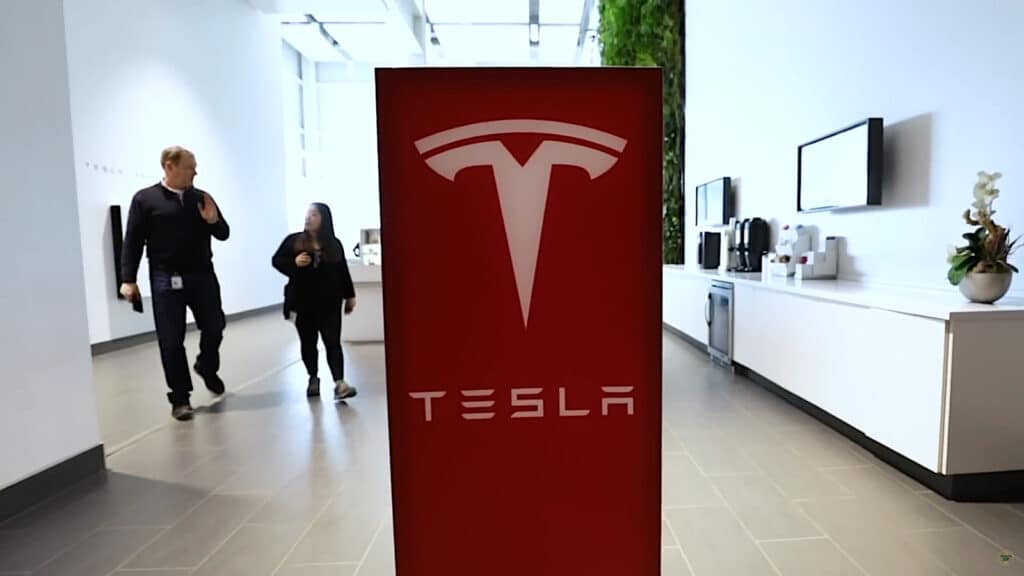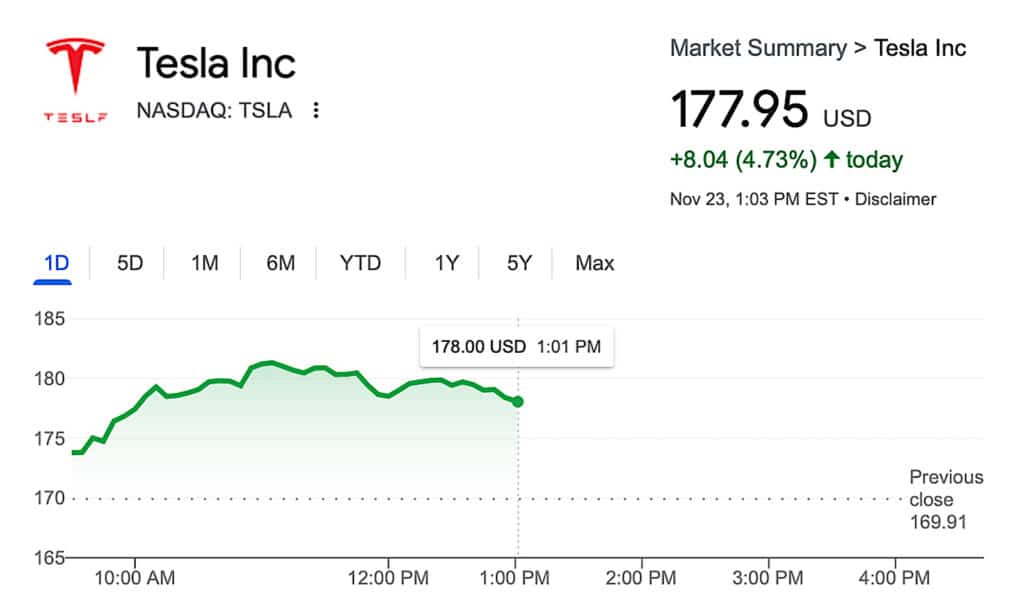TESLA

Once the darling of Wall Street, Tesla is now struggling to keep investors loyal, with the electric vehicle maker's share price falling to a new 52-week low on Tuesday morning.
The stock rallied slightly after hitting a new bottom, but Tesla nonetheless lost nearly $600 billion in market capitalization over the past two months, with skeptics wondering if it could drop further.
To put things in perspective, Tesla lost market capitalization equal to nearly three Toyota Motor Co., 10 General Motors and Ford Motor Co., and seven Volkswagen AG. Despite the impact on its value, the electric vehicle maker was still worth about $566 billion as of mid-morning on Wednesday, making it the seventh-largest corporation in the world based on market capitalization.
A Tsunami of Problems...What lies behind the massive decline is a matter of debate, but a variety of factors appear to be contributing to the liquidation. This includes long-standing concerns about Tesla's quality. The automaker's shares fell 3% earlier this week after announcing the recall of 30,000 Model X SUVs because a defect could cause the airbag to malfunction. And 40,000 Model S and X battery-electric vehicles were recalled earlier this month because they could lose power steering when driving on rough roads. Prior to that, the company recalled 1.1 million vehicles due to a problem with window regulators.
Meanwhile, Tesla dropped to 19th out of 24 brands covered by Consumer Reports' Annual Car Reliability Report, an owner-based study that has historically had a significant impact on buying patterns.
Another study released this month by Kelley Blue Book found that “consideration” of Tesla products by potential buyers “plunged” during the third quarter of the year, even as it rose for brands now competing in the EV space.
Sales rebound still fell short...Tesla sales grew during the July-September quarter to 343,830 sedans and SUVs, up from the 254,695 vehicles Tesla delivered during the second quarter. But the latest figure was nearly 8% below the consensus sales forecast of 371,000 Tesla vehicles by industry analysts, based on data collected by FactSet.
But one of the biggest headaches for the automaker could be its CEO. For the past decade, Elon Musk has been the prominent face of Tesla, with a large fan base that has helped turn the company into the dominant force in the nascent electric vehicle market. Musk's expansive use of social media has helped — at least until recently. But now he risks alienating many of his fans as well as potential Tesla buyers. he offers increasingly conservative tweets.
It doesn't help that Musk has also become increasingly distracted by his decision to buy social media site Twitter — and the challenges that have arisen since he completed the acquisition.
“I have a lot of work to do for sure,” Musk said last week during a business conference held in conjunction with the G20 summit in Bali. “I’m working as hard as I can – morning to night, seven days a week.”
In the “right way”? Not everyone is so confident...Musk predicted that his workload will eventually lighten when he gets Twitter back on the "right track," but not everyone is so optimistic.
Twitter has become an “albatross” not just for Musk, but also for Tesla, warned Dan Ives, a widely followed analyst at Wedbush and a traditional Tesla bull.
To complete the $44 billion acquisition, Musk sold more than $15 billion of his Tesla stakes. But he also had to borrow a substantial amount of money, which will require him to pay around $1 billion in interest annually.
And, combined with the turmoil within Twitter, which has contributed to growing concerns among investors, wrote Tesla major investor Gary Black.
Problems in China... But Black also pointed to another problem that is causing investors to turn away from Tesla, “continued uncertainty about sales and prices in China”.
Tesla opened its first overseas factory in late 2019 and the brand quickly came to dominate the growing electric vehicle sector of the market. But competitors like BYD and Geely have quickly gained traction and are putting increasing pressure on Tesla to cut prices.
To complicate matters, the Chinese government continues to take aggressive steps to try to control COVID, with some observers worried that this could lead to lockdowns that would again affect Tesla's factory operations.

Reaching a New Low...Wednesday morning, Tesla shares hit a new 52-week low of $166.79, down from a high of $399.93 over the same period. And while it bounced back quickly, with the stock reaching $181.30, investors soon began to pull back again.
Adam Jonas, Morgan Stanley's lead auto analyst, sees the potential that Tesla could continue to decline, with stocks now "approaching our $150 low case, driven by price cuts in China, slowing demand for electric vehicles and other market streams”.
But not everyone is so negative. Citigroup's Itay Michaeli raised his forecast for Tesla stock by $35 and changed his recommendation from "sell" to "hold." But at $176 a share, Michaeli still expects Tesla's stock to continue falling for a bit before leveling off.
Overall, Wall Street seems increasingly concerned about Tesla. Few expect the defeat of the past two months to continue, but even fewer expect the automaker's shares to recoup their heavy losses soon.
by Paul A. Eisenstein, Detroit-USA

Nenhum comentário:
Postar um comentário